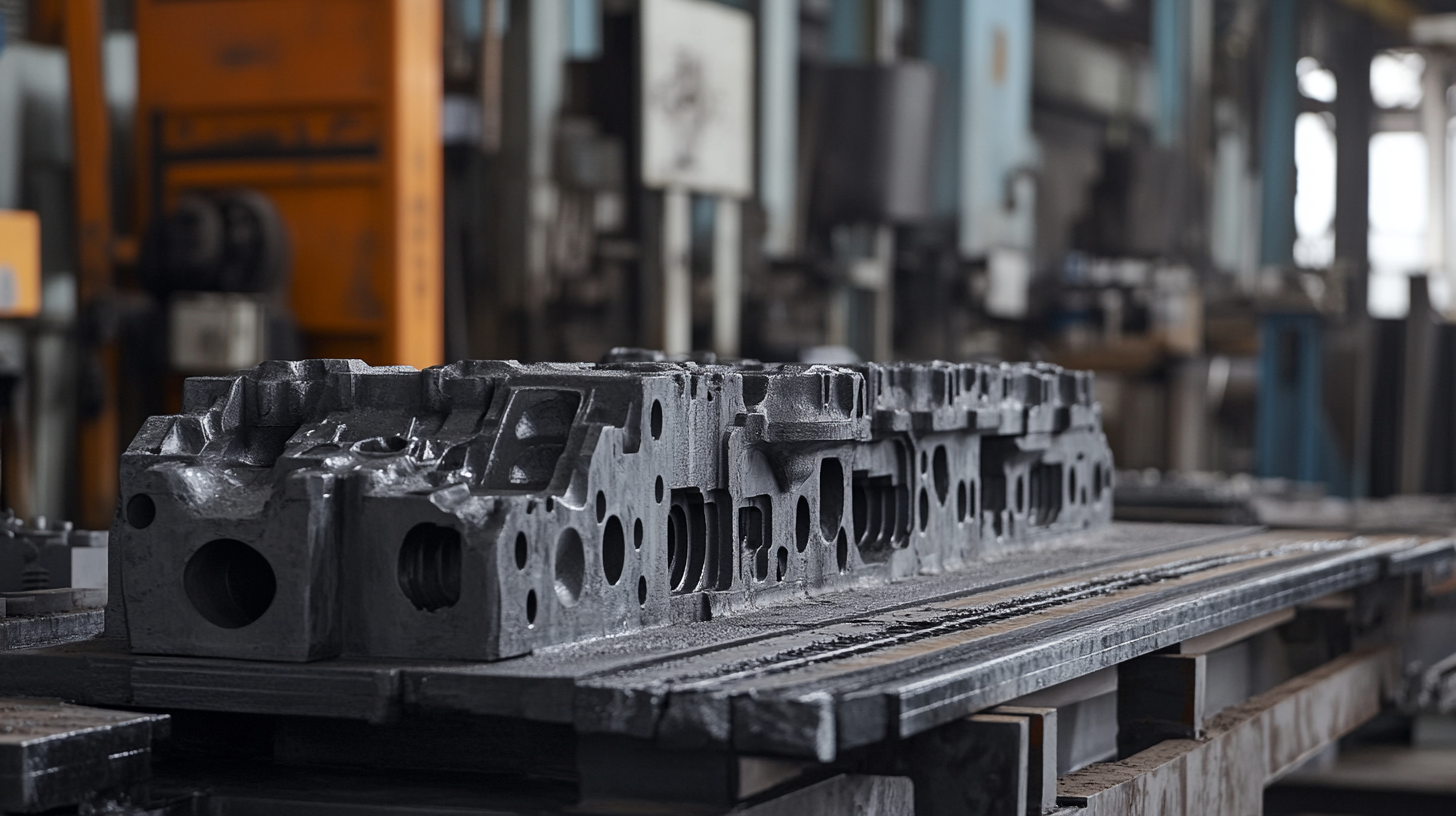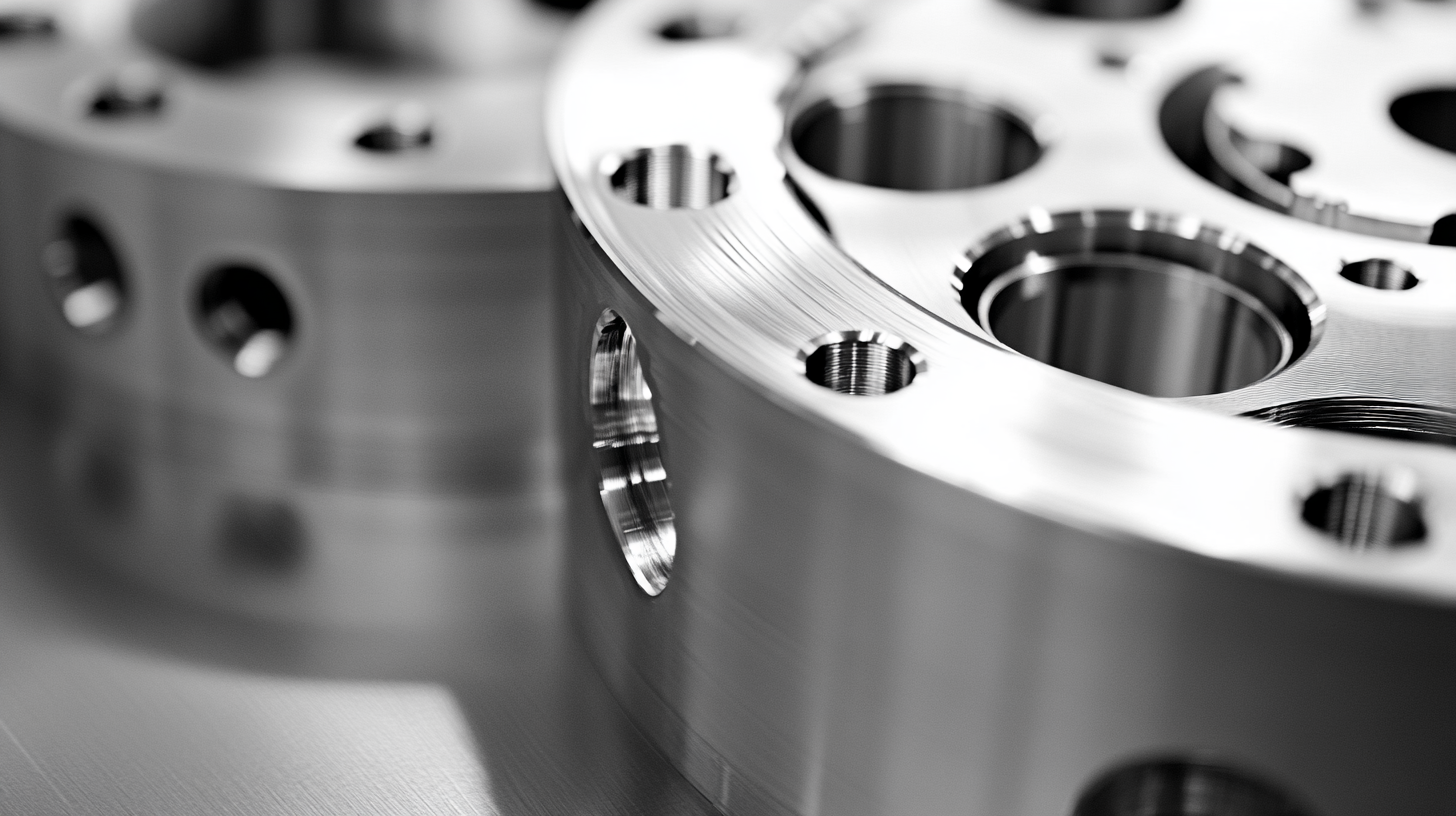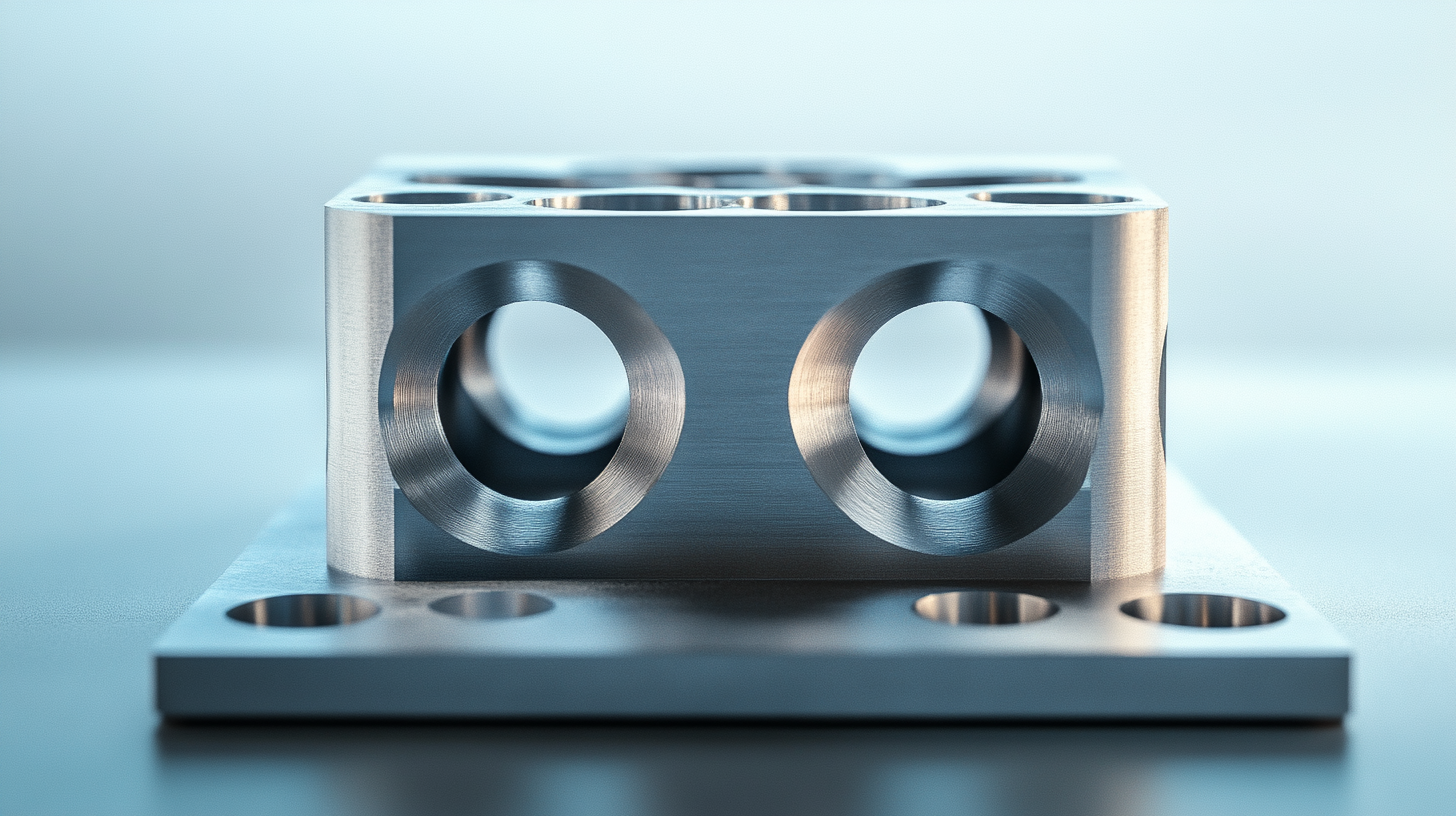 +86 180 0293 5268
+86 180 0293 5268






In the ever-evolving landscape of global manufacturing, "High Precision Casting" has emerged as a cornerstone of quality and efficiency, particularly from manufacturers in China. This advanced technique, which involves the meticulous pouring of molten metal into high-accuracy molds, ensures that end products meet stringent specifications and performance standards. As international markets demand higher quality components that can withstand the rigors of modern applications, Chinese manufacturers have risen to the challenge, leveraging cutting-edge technology and skilled craftsmanship to enhance their offerings. This blog explores the transformative impact of high precision casting in China, highlighting how these practices not only elevate product quality but also position Chinese manufacturers as key players in the global market. From automotive to aerospace, the implications of this manufacturing evolution resonate across industries, making high precision casting a critical focus for businesses aiming to maintain competitive advantages in today's fast-paced environment.

High precision casting is revolutionizing global industries by offering superior quality and reliability. As manufacturers increasingly prioritize precision in their production processes, the demand for advanced casting techniques has surged. This approach not only enhances product quality but also meets the stringent requirements of various sectors such as aerospace, automotive, and electronics. By leveraging cutting-edge technology, companies can achieve intricate designs and tighter tolerances, ultimately improving performance and reducing waste.
Moreover, the benefits of high precision casting extend beyond just improved quality. It plays a crucial role in addressing the challenges faced by manufacturers in today's volatile market. With geopolitical tensions, supply chain disruptions, and rising costs affecting production, high precision casting enables companies to adapt swiftly and efficiently. The ability to produce components that meet exact specifications helps mitigate risks, ensuring a steady supply of essential parts, which is vital in maintaining competitiveness in an ever-evolving landscape. As global markets continue to change, high precision casting will remain a key driver in elevating quality and performance across industries.
High Precision Casting Made in China is not just a trend; it signifies a monumental shift in manufacturing standards, significantly elevating the quality of products for global markets. Central to this transformation are key technologies that facilitate high precision casting, positioning China as a formidable player in the global landscape.
One of the driving forces behind this advancement is the integration of CNC (Computer Numerical Control) technology, which enhances precision and reduces production time. As the global CNC machine market is projected to grow substantially, with an anticipated size of $195.59 billion by 2032, manufacturers in China are primed to leverage this growth. Implementing automated CNC solutions allows for greater accuracy in casting, ensuring that intricate designs are produced consistently.
Moreover, investment in high-pressure die casting equipment is another crucial technological advancement. With a market projected to reach $2.98 billion by 2030, high-pressure die casting enables manufacturers to produce complex geometries quickly and efficiently. This method not only enhances production capabilities but also ensures that cast parts exhibit superior mechanical properties.
**Tips:** To fully capitalize on these advancements, manufacturers should consider investing in employee training to optimize the use of new technologies. Additionally, collaborating with international partners can lead to knowledge exchange and ultimately improve product quality. Adopting sustainable practices in high precision casting will also cater to the growing demand for environmentally friendly manufacturing processes.
In recent years, China's high precision casting sector has witnessed significant advancements in quality control measures, ensuring that products meet international standards and customer expectations. Companies are increasingly adopting advanced technologies and stringent protocols to enhance the precision and reliability of their casting processes. Automation and real-time monitoring systems play a pivotal role in this transformation, allowing manufacturers to detect and rectify issues swiftly, thus minimizing defects and maintaining high product integrity.
Quality control in high precision casting not only involves rigorous testing of the final products but also focuses on the entire production process. From raw material selection to post-production inspections, each stage is meticulously monitored to ensure compliance with global quality benchmarks. Additionally, collaboration with international experts and adherence to global certifications has allowed Chinese manufacturers to elevate their practices, fostering a culture of continuous improvement. As a result, China's high precision casting industry is not only meeting the demands of local markets but is also becoming a competitive force in the global marketplace.

High Precision Casting Made in China Elevating Quality for Global Markets
In recent years, China's high precision casting industry has emerged as a competitive force in the global market, showcasing significant improvements in quality standards. With advancements in technology and increased investment in research and development, Chinese manufacturers have narrowed the quality gap with their international counterparts. According to industry reports, the quality of casting products from China now often meets or exceeds that of traditional leaders, driven by enhanced process control and material selection. This shift is accompanied by a growing demand for lightweight and durable components in sectors such as automotive and aerospace, further solidifying China's position in the global supply chain.
To leverage the advantages of high precision casting, manufacturers should focus on robust supplier assessments and fostering partnerships with companies that prioritize quality. Tips for success include regularly updating production techniques based on the latest technologies and standards and conducting thorough quality audits of suppliers. By emphasizing quality assurance and continual improvement, businesses can not only enhance their product offerings but also align themselves with global market demands.
Moreover, opportunities abound as global markets increasingly seek sustainable manufacturing processes. Companies that adopt green casting technologies can gain a competitive edge while contributing to environmental conservation. As demand for high-quality, sustainable products rises, manufacturers in China are well-positioned to capitalize on these emerging trends. By harnessing their strengths and addressing weaknesses, they can continue to elevate their status in the global casting market.
| Country | Casting Quality Score (0-100) | Market Share (%) | Leading Industry Sectors |
|---|---|---|---|
| China | 85 | 45 | Automotive, Aerospace, Machinery |
| Germany | 90 | 20 | Automotive, Engineering |
| USA | 88 | 15 | Defense, Aerospace |
| Japan | 87 | 10 | Electronics, Automotive |
| India | 82 | 8 | Heavy Machinery, Railways |
The high precision casting industry in China is poised for significant growth as global markets increasingly demand superior quality and innovative solutions. As we approach 2025, advancements in technology will redefine the casting landscape, particularly within high-stakes sectors like aerospace and defense. The operationalization of emerging technologies, including AI and 3D printing, is expected to streamline production processes and enhance precision, meeting the stringent requirements of modern manufacturing.
Furthermore, the global metal casting market is projected to experience robust expansion, with an estimated value surpassing USD 325 billion by 2033. This surge is driven by rising construction activities and the evolution of automation technologies that improve efficiency and reduce costs. As manufacturers embrace these trends, the potential for high precision casting to impact various industries, including automotive and energy, becomes increasingly evident. The focus on quality and innovation positions China as a key player in the global market, shaping the future of precision manufacturing.

